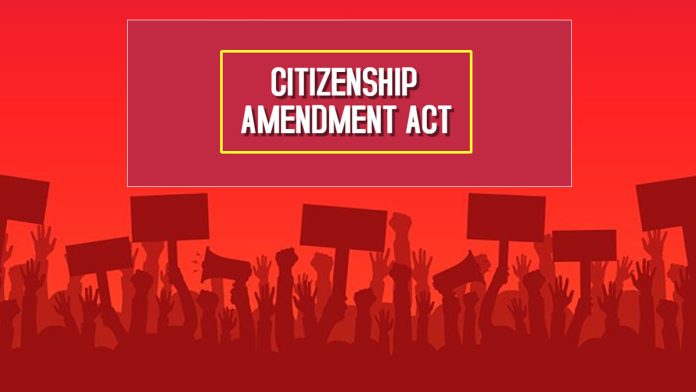The Citizenship Amendment Act (CAA) is poised for implementation, with government sources to The Buckstopper indicating a rollout in the first week of March. This development comes after months of speculation and anticipation. According to insights from government officials, meticulous preparations have been underway, including the establishment of a dedicated online portal to streamline the application process. This portal is expected to play a pivotal role in facilitating the documentation and verification procedures for individuals seeking citizenship under the CAA.
Addressing concerns and dispelling misconceptions, Union Home Minister Amit Shah reaffirmed the government's commitment to implementing the CAA. He emphasised the non-discriminatory nature of the law, stressing that it aims to provide refuge and support to persecuted minorities from neighbouring countries.
CAA has been a topic of extensive discussion and debate since its passage by Parliament in December 2019. Amidst widespread protests and political discourse, the Modi government is gearing up to implement the CAA.
Shah's remarks underscored the historical context behind the legislation, citing the plight of minorities facing religious persecution in Bangladesh, Pakistan, and Afghanistan. He reiterated the government's pledge to uphold India's humanitarian ethos by extending a helping hand to those in need.
Since the impending implementation of CAA has sparked a renewed interest and scrutiny, here, The Buckstopper team delves into the intricacies of the CAA, addressing fundamental questions surrounding its provisions, implications, and controversies.
Background and Timeline of CAA:
The journey of the CAA began with its introduction in the Lok Sabha in 2016, followed by subsequent iterations and eventual passage in both houses of Parliament in December 2019. However, its implementation has been delayed due to various factors, including protests, legal challenges, and the COVID-19 pandemic.
Reasons for Delay:
The delay in implementing the CAA can be attributed to a myriad of factors, including widespread protests, legal challenges questioning its constitutional validity, and the complexities involved in finalizing the rules and procedures governing its implementation. Additionally, the government has sought extensions to formulate the necessary regulations, further prolonging the process.
Eligibility for Citizenship:
Under the CAA, Indian citizenship will be granted to non-Muslim immigrants from Afghanistan, Bangladesh, and Pakistan who entered India before December 31, 2014, fleeing religious persecution. The law specifically targets minority communities, including Hindus, Sikhs, Jains, Parsis, Buddhists, and Christians, excluding Muslims.
Application Process:
The government has streamlined the application process by establishing an online portal, allowing applicants to submit their requests electronically. Applicants are required to specify the year of their entry into India without documents, and no additional documentation is necessary. The Home Ministry will conduct investigations and grant citizenship accordingly.
Previous Granting of Citizenship:
In recent years, district magistrates in nine states have been empowered to grant Indian citizenship to non-Muslim minority communities from Afghanistan, Pakistan, and Bangladesh. According to reports, over 1,400 individuals have been granted citizenship under this provision from April to December 2021.
Protection of Existing Citizens:
The government has reiterated that there is no provision in the CAA to revoke the citizenship of any Indian citizen, regardless of their religion. The law is aimed at providing refuge to persecuted minorities and does not pose a threat to the citizenship status of existing residents.
Length of Residency Requirement:
While Indian citizenship traditionally requires a residency period of 11 years, the CAA reduces this requirement to six years for eligible non-Muslim immigrants from the specified countries. This provision has been a point of contention, with critics questioning its selective nature.
Concerns in the Northeast:
States in the Northeast, such as Assam and Tripura, have expressed apprehensions regarding the potential demographic changes and resource allocation implications of the CAA. Indigenous communities fear losing their cultural identity and livelihoods to an influx of migrants from neighboring countries.

Political Perspectives:
The political discourse surrounding the CAA is multifaceted, with the ruling BJP advocating for its implementation as a humanitarian gesture and fulfillment of electoral promises. However, opposition parties have criticized the law, citing concerns of discrimination and constitutional violations.
Current Status and Future Outlook:
As the government prepares to notify the rules and procedures governing the implementation of the CAA, political tensions and public debates continue to escalate. While the Modi government remains steadfast in its commitment to enacting the CAA, opposition parties and civil society groups vow to resist its implementation

Ram Kumar Kaushik is a seasoned journalist with over 25 years of experience across mediums. The architect of this news website, he is also a consultant with several media groups. He was formerly the group managing editor of ITV Network (NewsX, India News and The Sunday Guardian) and its digital products.



